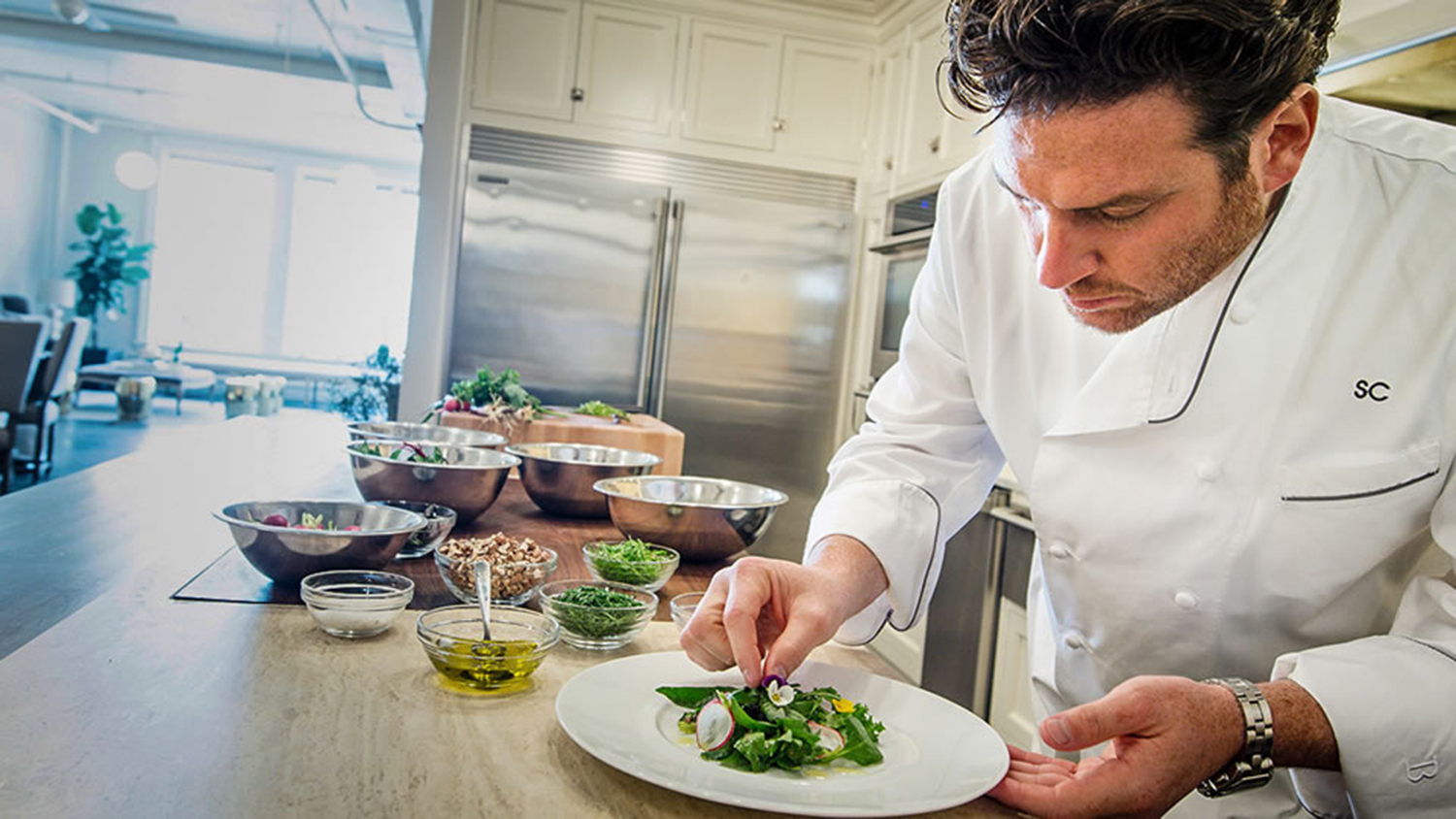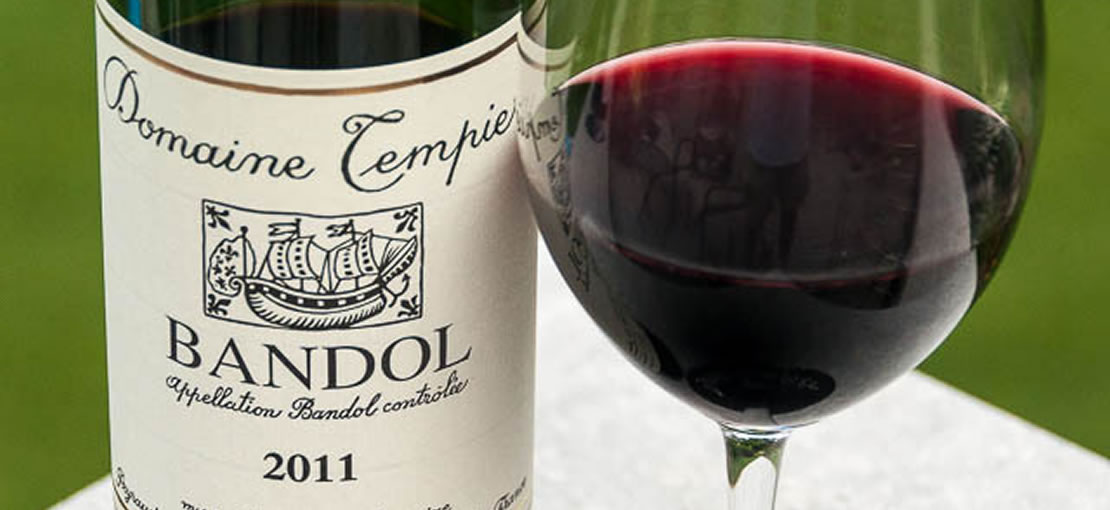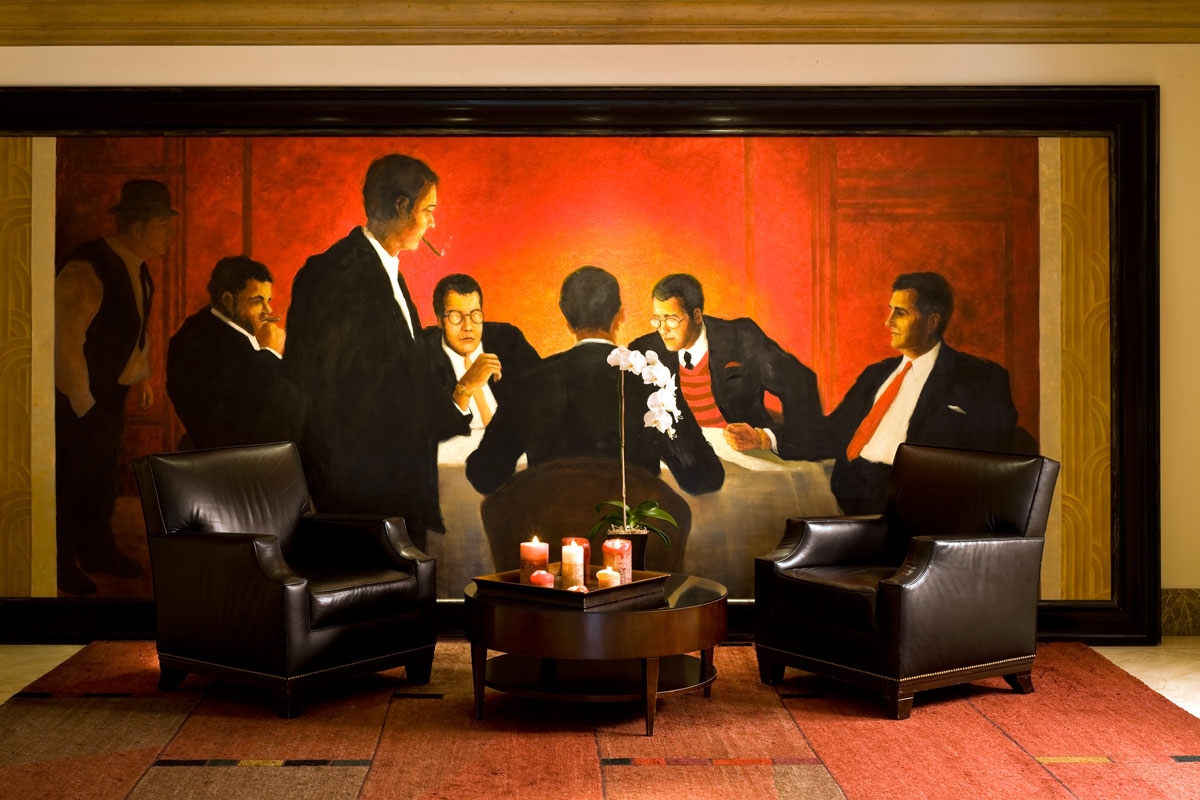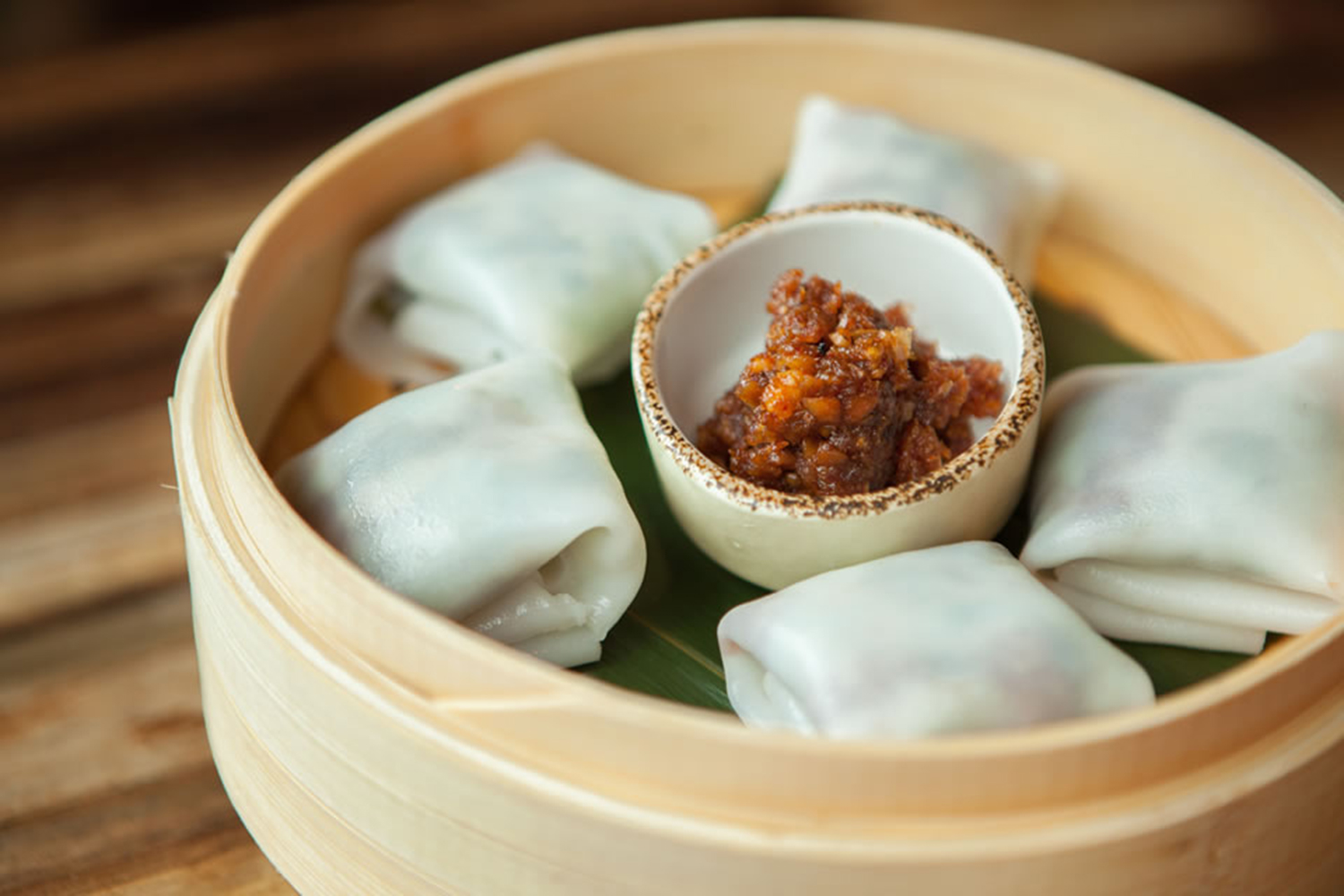Scott Conant is taking a second to catch his breath. In preparation for the opening of his latest restaurant, Corsair, at Turnberry Isle Miami resort last December, the 44-year-old chef has been consumed with last-minute details for the brand-new eatery—think media tours, interviews, and design and menu adjustments—and is only now able to see the benefits of his work filter through in the form of glowingly positive reviews.
But this isn’t Conant’s first time going through the manic roller coaster ride that is launching a new restaurant—far from it, in fact. His experience opening restaurants and revamping flailing ones dates back to the late 1990s, and he debuted the first piece of his Conant-owned empire, the award-winning Italian eatery Scarpetta, in 2008. Something of an overachiever (though he’ll be quick to tell you otherwise), the chef also has written several cookbooks, appeared as a judge on multiple seasons of the Food Network’s “Chopped,” and is the father of two daughters. The concept of juggling it all, he admits, is still something of a work in progress, but if you know anything about Conant, it’s that he’s always up for a challenge.
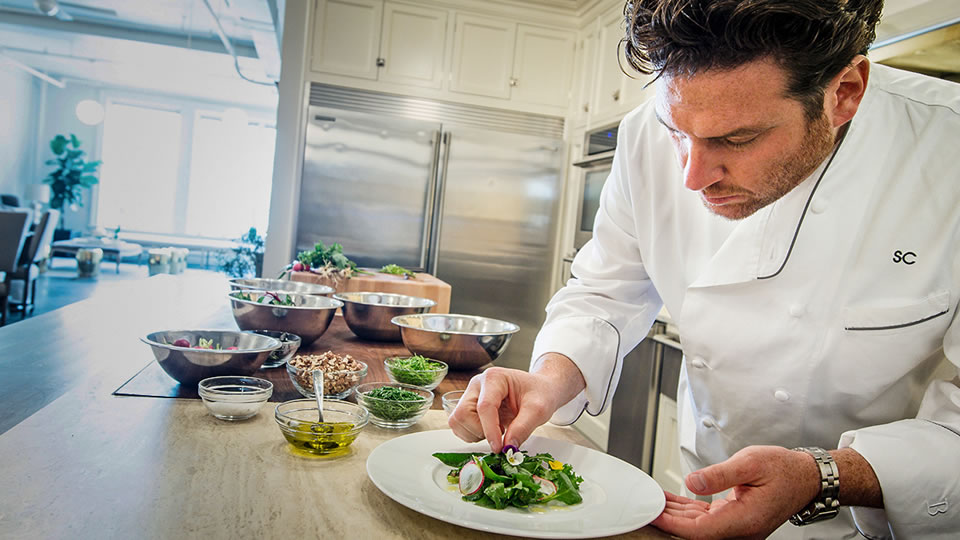
Making the Cut
Born and raised in suburban Connecticut, Conant grew up in the kind of Italian family whose home life revolved around the dinner table. He took his first cooking class when he was 11, but didn’t necessarily consider making a long-term career out of his hobby until years later when he was in high school. “I went to a vocational school, and we had to choose which classes we wanted to take,” he says. “My first choice was plumbing, because plumbers made more money than cooks. It was the mid-1980s, and what exists now in the restaurant world didn’t necessarily exist then; the opportunities just hadn’t opened up.”
A serendipitous twist of fate—the plumbing class filled up before Conant could join—forced him into the culinary track, and he hasn’t looked back since. After finishing high school, he headed to New York to attend The Culinary Institute of America (CIA) in Hyde Park, a move that he describes as “everything” in terms of its effect on his worldview and experience as a cook.
While there, he landed an internship at Manhattan hot spot San Domenico and, after graduating from the CIA, he decamped for Munich to cook at the legendary Hotel Bayerischer Hof for a year. “It was an interesting time because the [Berlin] Wall had just come down in 1989, and so a lot of foreigners were starting to feed into West Germany [from the east] and throughout Europe,” he says of the experience overseas. “At the same time, it was like a time capsule—no changes in infrastructure.”
Upon returning to New York, Conant logged time at a variety of ultrahip Italian eateries, from San Domenico (again) and Il Toscanaccio to Chianti and Barolo, where he was named executive chef at just 25 years old. It was at these restaurants that Conant refined his craft, developing a cooking style he characterizes as “sprezzatura,” which loosely translates to nonchalance and connotes an ability to make the elegant look easy. “I have a pretty solid foundation in Italian principle,” he says. “But I think that’s the goal with everything I do—easy, elegant, rustic food.”
Within just a few years, that toned-down style would have the attention of a serious chunk of Manhattan. In 2002, Conant opened the James Beard Award-winning L’Impero, and later, a Northern Italian concept called Alto. Following these launches, he partnered with LDV Hospitality to form Scott Conant Management (now SC Ventures), and the firm launched its first project, Scarpetta, in Manhattan’s Chelsea neighborhood in 2008, kicking off what would be a string of culinary home runs.
Taking the Heat
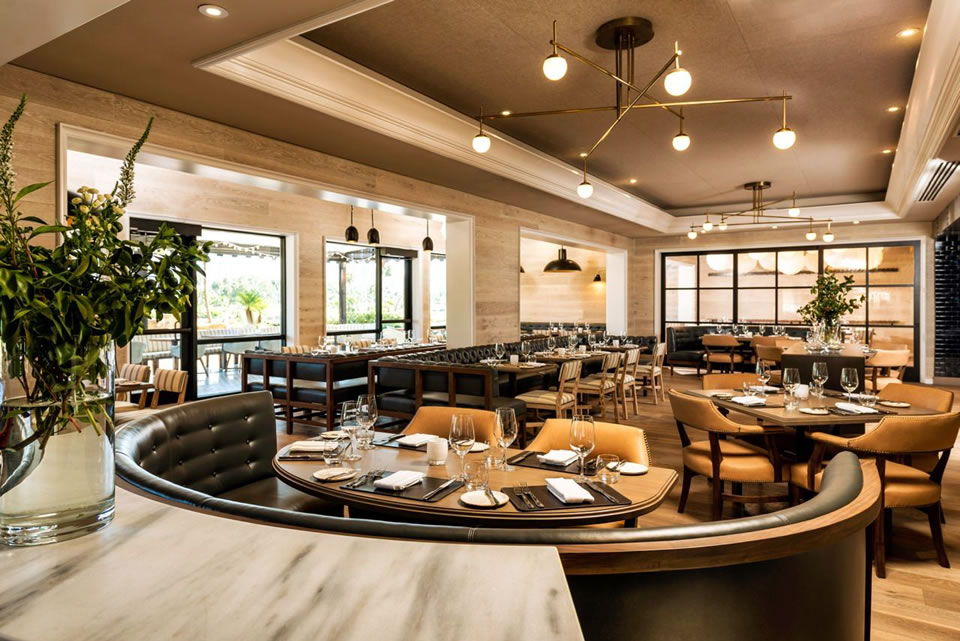
Fueled by the full-blown success of the first Scarpetta, Conant opened a trio of additional outposts in Beverly Hills, Las Vegas and Miami. He formally ended his relationship with the New York branch in 2014, but maintains close ties with the remaining three along with his Las Vegas wine bar, D.O.C.G. Enoteca, the aforementioned Corsair in Miami, and the SC Culinary Suite in Manhattan, which serves as an event venue, test kitchen and his company’s corporate headquarters.
He has filled the gaps between restaurant openings by penning three Italian cookbooks, releasing his own line of cookware, and joining the cast of the Food Network’s “Chopped,” on which he famously delivered a tirade against the overuse of raw onions and is remembered as one of the show’s most polarizing judges. Still, he refuses to refer to himself as a “celebrity chef,” instead reserving that title for icons like Wolfgang Puck, Daniel Boulud and Eric Ripert.
Despite his many triumphs, Conant will be the first to admit that the road to professional acclaim has been far from easy; if anything, he says, life has become more difficult as he has gotten older.
“Success is one of those crazy things where people think it all becomes easy at a certain point, but I would have to say that probably nothing is easy,” he says. “When you have expectations of yourself and people have expectations of your craft, it’s a constant challenge. … Back then [when I was younger,] I was working for a paycheck, just to pay my rent and gain experience—hopeful and hungry and ambitious and all of that stuff.” And while he still considers himself all of those things, he also acknowledges the fact that his roles, both in the kitchen and at home, have changed.
Becoming a husband and a father, in particular, have had a profound effect on him, and the never-ending balancing act is something he’s always trying to improve upon. “After a lot of therapy sessions, I can definitely say that I love my family more than anything, and I would do anything to keep that intact and happy, but I also think that being entrepreneurial is an inherently selfish approach to life,” he muses. “I want to spend time with my family, but I also need to do the work that I’m doing. … Thankfully, my wife knows that.”
Letting it Simmer
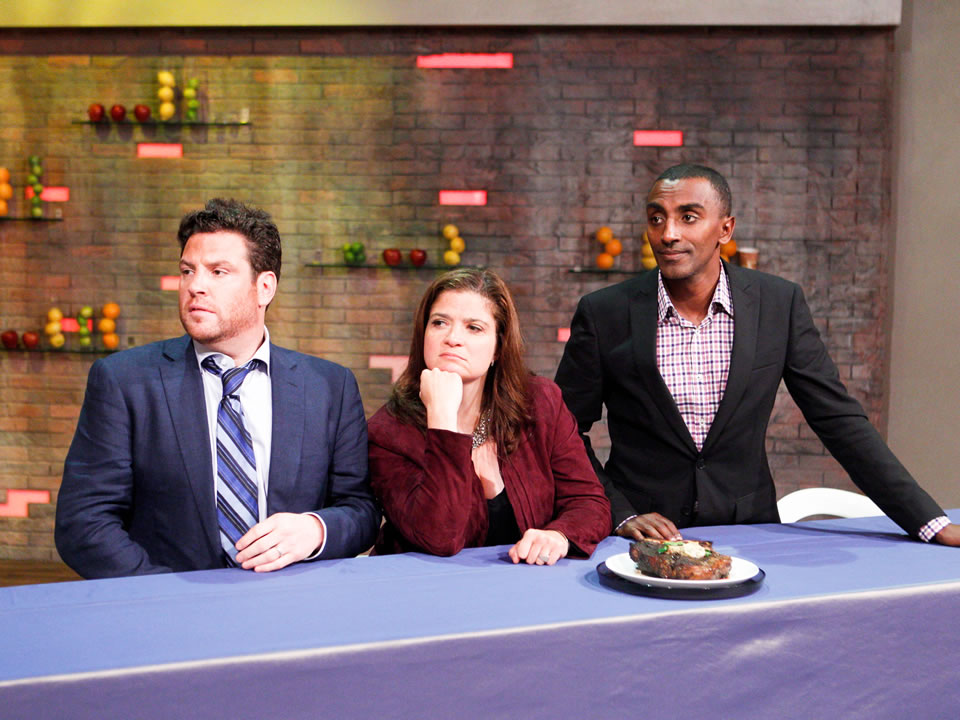
Nowadays, Conant remains entirely focused on expanding his brand. At the end of last year, he announced his plan to return to Manhattan in 2015 with a new concept, simply called Conant. Though he’s hesitant to elaborate on specifics, he expects, as always, to be heavily involved in the restaurant’s design (everything from decor to lighting) as well as its menu and service style.
He confesses to feeling constantly in a state of competition to be and do better, but explains that it’s more of an inner struggle than a battle against his fellow chefs. “It’s about staying relevant,” he says, adding that his version of relevancy is rooted in things like flavor development and creating a sustainable vision for his cooking. Likewise, he’s open about taking little satisfaction in his successes, noting that his main source of pride came from having his father, who passed away last year, be able to see some of what he has been working toward for years.
Perhaps because of this unbridled ambition, he finds little time for hobbies, instead preferring to spend his downtime looking at other restaurants’ menus and pictures of food online. “I see these other chefs who are in bands or they play the guitar, and I see all of these restaurant people and they’re singers or taking acting classes or traveling the world all the time, and I think, ‘God, I wish I could do that,’ ” he jokes. “I wish I was that interesting.”
He does, however, consider traveling one of his few passions outside of cooking, and calls Tokyo one of the best food cities in the world. In fact, it’s the freedom to travel—to move on impulse, with abandon—that has become one of his greatest goals.
“I always say I’m working toward spontaneity,” he explains. “I want to get to a point in my career where I can be spontaneous, where I can say to my wife and kids, ‘Let’s jump on a plane and go to Paris for five days. Let’s drive to the airport right now and go someplace.’ There’s something very freeing about that, right?”
—Written by Tess Eyrich

